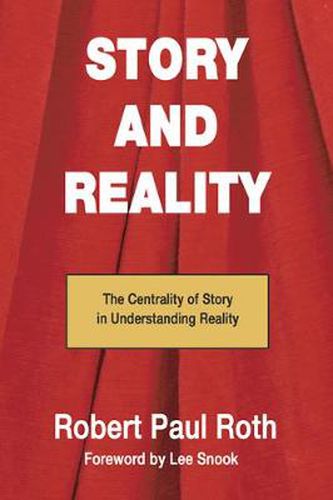Readings Newsletter
Become a Readings Member to make your shopping experience even easier.
Sign in or sign up for free!
You’re not far away from qualifying for FREE standard shipping within Australia
You’ve qualified for FREE standard shipping within Australia
The cart is loading…






This title is printed to order. This book may have been self-published. If so, we cannot guarantee the quality of the content. In the main most books will have gone through the editing process however some may not. We therefore suggest that you be aware of this before ordering this book. If in doubt check either the author or publisher’s details as we are unable to accept any returns unless they are faulty. Please contact us if you have any questions.
No Christian will dispute the importance of properly understanding the gospel. And throughout the centuries the function of theology has been to aid that understanding. In good part, as the author of this challenging study indicates, theology has turned to philosophy, history, sociology, or yet other disciplines in an effort to make its own message clear; that is, theology has used philosophical or historical or sociological concepts of reality, and has then attempted to impose upon reality (so defined) a deeper theological significance. But that effort, Robert Roth believes, can never be completely successful, since each of these disciplines – valuable as they are in themselves – are compelled by their nature to reduce both reality and theology to the level of what is human, thus leaving out the very thing that theology is all about: God. Roth contends that theology must use as its model what he terms story, the kind of large, comprehensive tale or myth that takes into account the basic facts of the universe and human existence. The nature of story, he tells us, is essentially dramatic, filled with tension between opposing forces. The conflict between good and evil, for example, or between hope and despair, has always characterized great literature. And it is precisely those same conflicts that characterize reality. Little wonder that God’s account of reality – the gospel – is cast in story form. ‘Story and Reality’ is an exciting and unusual approach to the question of what constitutes God’s message to humanity; it offers as well new insights into the nature of literature, and the role story can play in helping us properly apprehend reality. Roth demands an effort on the part of his readers; but it is an effort that will be richly repaid.
$9.00 standard shipping within Australia
FREE standard shipping within Australia for orders over $100.00
Express & International shipping calculated at checkout
This title is printed to order. This book may have been self-published. If so, we cannot guarantee the quality of the content. In the main most books will have gone through the editing process however some may not. We therefore suggest that you be aware of this before ordering this book. If in doubt check either the author or publisher’s details as we are unable to accept any returns unless they are faulty. Please contact us if you have any questions.
No Christian will dispute the importance of properly understanding the gospel. And throughout the centuries the function of theology has been to aid that understanding. In good part, as the author of this challenging study indicates, theology has turned to philosophy, history, sociology, or yet other disciplines in an effort to make its own message clear; that is, theology has used philosophical or historical or sociological concepts of reality, and has then attempted to impose upon reality (so defined) a deeper theological significance. But that effort, Robert Roth believes, can never be completely successful, since each of these disciplines – valuable as they are in themselves – are compelled by their nature to reduce both reality and theology to the level of what is human, thus leaving out the very thing that theology is all about: God. Roth contends that theology must use as its model what he terms story, the kind of large, comprehensive tale or myth that takes into account the basic facts of the universe and human existence. The nature of story, he tells us, is essentially dramatic, filled with tension between opposing forces. The conflict between good and evil, for example, or between hope and despair, has always characterized great literature. And it is precisely those same conflicts that characterize reality. Little wonder that God’s account of reality – the gospel – is cast in story form. ‘Story and Reality’ is an exciting and unusual approach to the question of what constitutes God’s message to humanity; it offers as well new insights into the nature of literature, and the role story can play in helping us properly apprehend reality. Roth demands an effort on the part of his readers; but it is an effort that will be richly repaid.